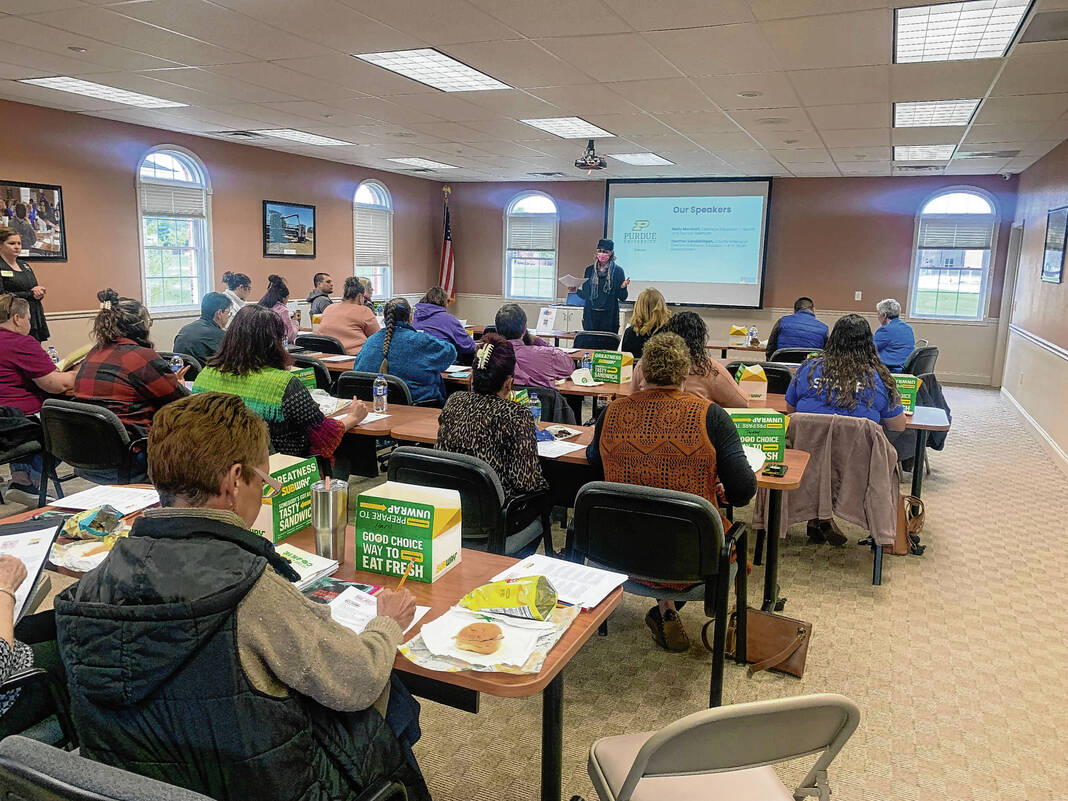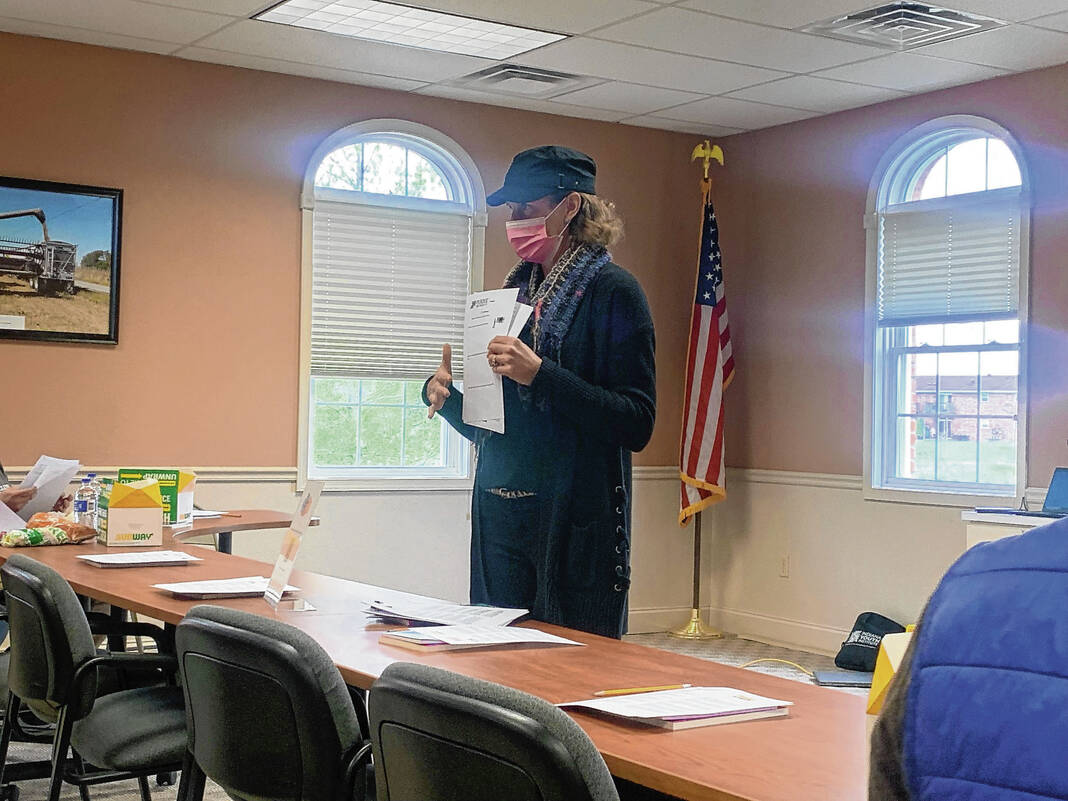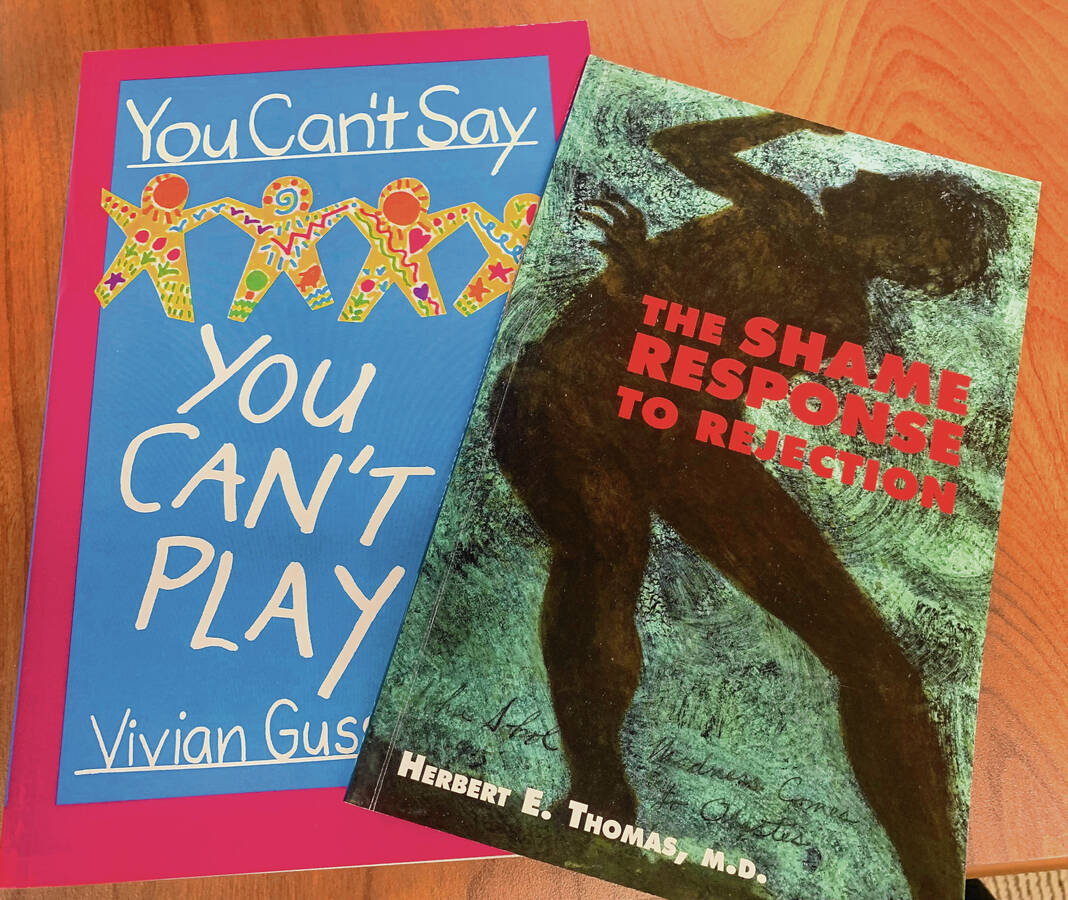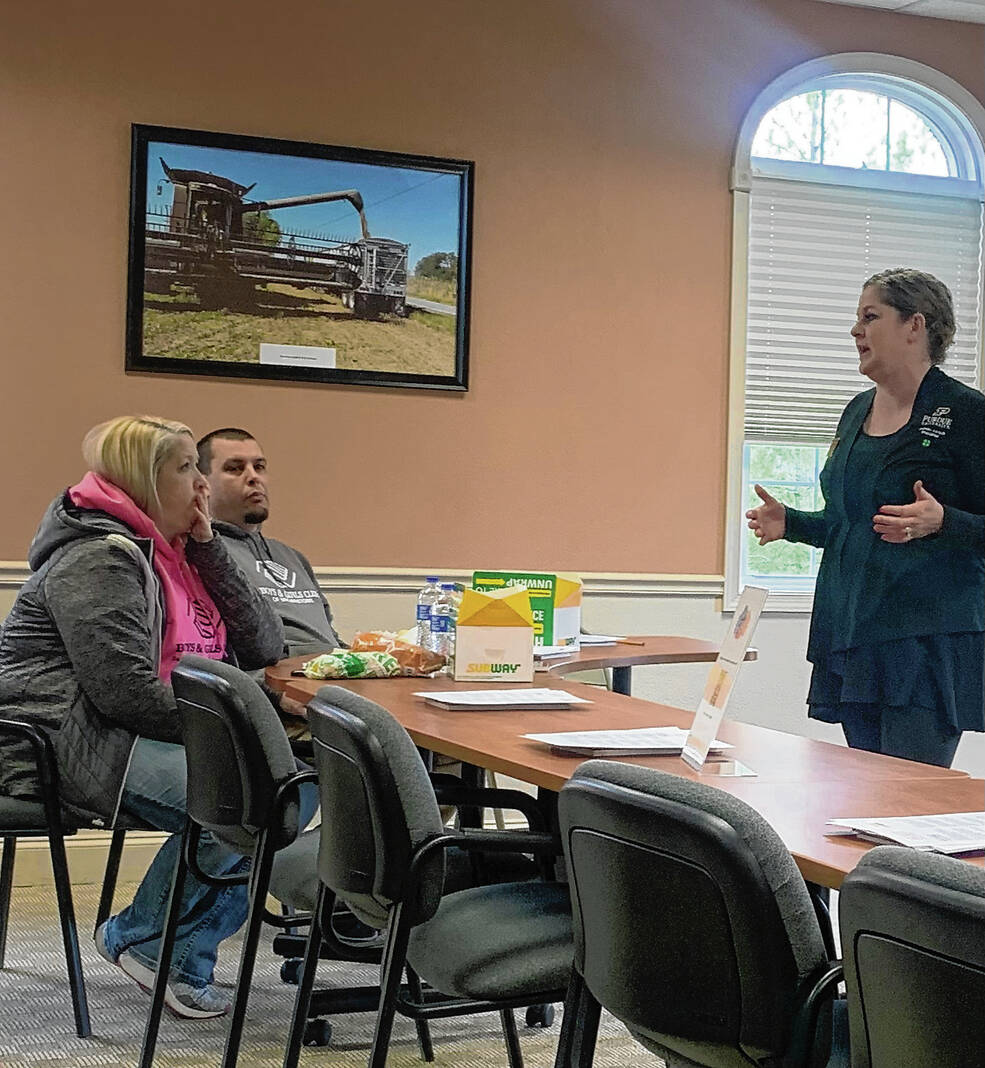
The “REJECT” documentary takes a look behind the science of social rejection and how it is related to shame and violence among the youth.

Many community members from various organizations gather at the Community Foundation of Jackson County on Tuesday to watch and discuss the “REJECT” documentary hosted by Purdue Extension Jackson County and Indiana Youth Institute.
Erika Malone | The Tribune

Purdue Extension Jackson County Health and Human Sciences Educator Molly Marshall introduces the film and statistics on youth suicide in Indiana gathered by the Indiana Youth Institute before showing the “REJECT” documentary on Tuesday afternoon.
Erika Malone | The Tribune

Free books were given at the “REJECT” documentary showing Tuesday afternoon. They included Vivian Gussin Paley’s “You Can’t Say You Can’t Play” and Herbert E. Thomas’s “The Shame Response to Rejection.”
Erika Malone | The Tribune

Purdue Extension Jackson County Director Heather VonDielingen, right, facilitates the discussion after the showing of the “REJECT” documentary Tuesday.
Erika Malone | The Tribune
The film “REJECT” demonstrates that social connection is as important to survival as food, water and shelter.
That documentary, which was shown by Purdue Extension Jackson County in partnership with Indiana Youth Institute on Tuesday at the Community Foundation of Jackson County in Seymour, accomplishes that mission by outlining the science behind social rejection with a focus on how rejection ultimately leads to shame and sometimes violence at an early age.
“We started showing this documentary in surrounding counties in 2018, and it’s a great tool for adults to see the science on how rejection can impact our youth,” said Molly Marshall, human and health sciences educator for Purdue Extension Jackson County.
The film focuses on two personal stories along with commentary given by experts in psychology, education, medicine, neuroscience and juvenile justice that have studied the effects of rejection and ostracism.
The documentary introduces 17-year-old Eric Mohat, a boy from a town outside Cleveland, Ohio, who was severely bullied in his math class every day for seven months until he took his own life.
Throughout the film, Mohat’s parents piece together why their son was driven to commit suicide and strive to bring awareness to the devastating impacts of suicide by being bullied and ostracism.
The Indiana Youth Institute released a data brief in 2018 that showed suicide is the second leading cause of death for youth ages 15 to 24 and the fourth leading cause of death for youth ages 5 to 14 in Indiana.
The documentary uses many examples of science and experiments to look at the roots of bullying and social rejection in relation to violent behavior against the self or others.
It also takes a look into the book “The Shame Response to Rejection” by Herbert E. Thomas that explains how the shame response is a physiological response to rejection by another person.
Thomas said an individual who experiences the rejection, and thus the shame response, may feel anything from intense physical pain to a sensation that is remote and barely noticeable.
According to the book, when the pain is sufficiently intense, it could be a source of great anger. The anger may be directed outward toward another or inward against the self, but it can lead, in turn, to violence.
Using functional magnetic resonance imaging, researchers were able to gather what the brain looks like in actual physical pain when people are rejected.
The film also touches on the shame response and violence in relation to ongoing societal issues, such as school shootings.
In 2019, the U.S. Secret Service National Threat Assessment Center conducted an analysis of target school violence and the motives behind attackers.
In their analysis, they found a grievance played a primary motive in 25% of attackers, 26% of grievances involved classmates and 19% of these peer-related grievances related to bullying in some way.
The documentary also takes on a solution-oriented approach showing how experts are finding opportunities and methods to try and prevent this shame response and violence from occurring among the youth.
Early childhood expert Vivian Gussin Paley introduces a rule that she practiced on her kindergarten students, “You can’t say you can’t play,” to create a foundation of social inclusion and help educators combat child exclusion at the root.
The other personal story in the film follows 5-year-old Justin, the son of Mexican immigrants who was labeled as a bully who lands himself in the principal’s office every day until he was suspended and moved to a different kindergarten class.
Now retired kindergarten teacher Terry Varnell from Will Rogers Elementary School in Stillwater, Oklahoma, kept Justin under her watchful eye. Throughout the film, Varnell watches Justin blossom in her classroom as he begins to feel accepted among his peers thanks to Paley’s rule.
With the conclusion of the film, Heather VonDielingen, the Purdue Extension Jackson County 4-H youth development educator, opened the room up for discussion among the many community members who watched the film.
“We need to do better. Our kids get their messages from us,” Tyler Henkle said. “This is something that is still happening, even in Jackson County.”
Stephanie Strothmann of Seymour said she liked how the film touched on the science and connection between the pain of rejection and physical pain.
Sherry Reinhart, director of nursing services for Seymour Community School Corp., said this is something she and her staff see in their offices a lot.
“These kids come to the office for a reason. They need someone to talk to,” she said. “I hope to speak on the awareness of this issue with the school board, staff and parents so kids can get the help they need.”
The Indiana Youth Institute and Purdue Extension Jackson County work together to improve the lives of all Indiana children by strengthening and connecting people, organizations and communities that are focused on the youth.
